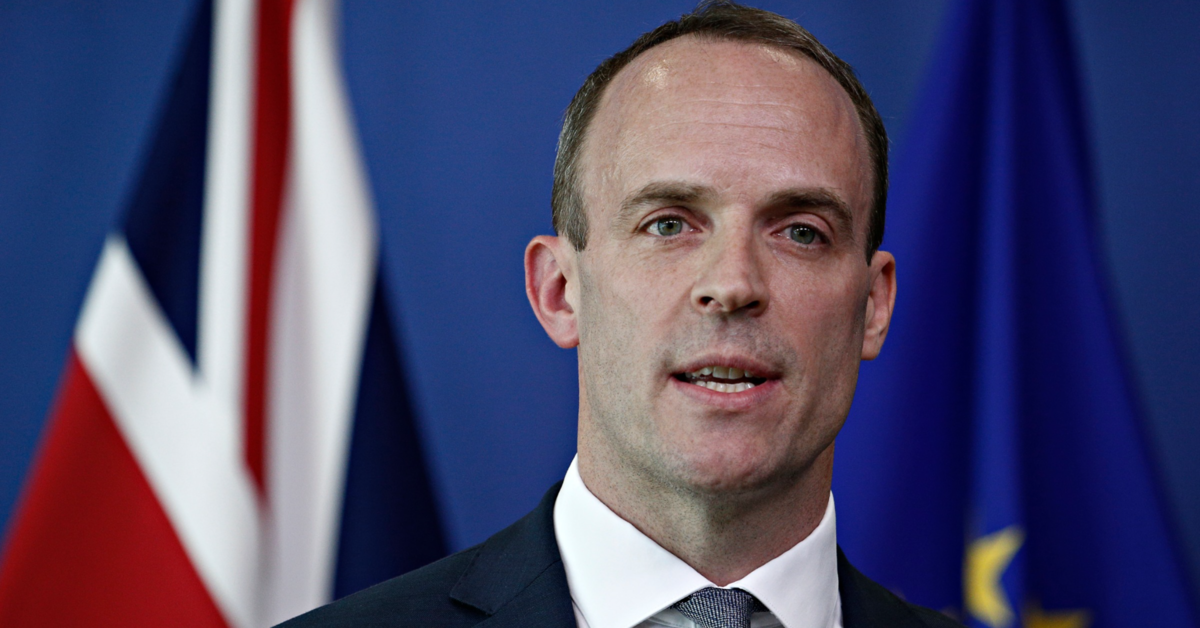What has been announced?
On Tuesday, James Cleverly, the UK Foreign Secretary, gave his first major speech on China. Traditionally, the Foreign Secretary uses the annual speech at the Lord Mayor’s Easter Banquet at Mansion House to cover a range of foreign policy issues. Unusually, this time Cleverly used the entire speech to focus on just one topic: the UK’s relationship with China. For over 40 minutes he set out in depth the new calibration of this relationship — an approach that, he said, could not be summarized in a single word or soundbite.
For a number of months, the Government has been under pressure from its backbenchers to designate China as a “threat.” This speech firmly pushed back against these critics. To go down the route of labeling China a threat might be “clear and easy — and perhaps even satisfying,” said Cleverly, but would in fact be a betrayal of the UK’s national interest. It would also be a willful misunderstanding of the modern world, he said, because no global challenge that the UK faces — from climate change, to global health, and economic stability — can be solved without China. Cleverly pointed out a number of examples where engagement on issues of mutual importance had delivered real results for the country.
This pragmatic dialogue, however, would not mean abandonment of the UK’s democratic principles and defense of human rights. Greater transparency was needed on China’s intentions in the Indo-Pacific and what is behind what he called the “greatest military buildup in peacetime history.” The UK would deepen its cooperation with allies in this region, stated Cleverly, and where there are tensions with other objectives, the UK’s national security would always come first.
In essence, therefore, Cleverly said UK policy towards China had three pillars: first, engaging directly, bilaterally, and multilaterally to reflect the reality of China’s global importance; second, bolstering collective security via allies and partners; and third, continuing to defend UK interests, including the promotion of human rights.
Continuity or change?
As in many other countries, the UK’s policy toward China continues to garner significant interest in media and Parliament with every intervention analyzed for whether it represents a softening or hardening of the approach. In this speech, the Foreign Secretary mainly built upon, in greater detail, the policy that the Prime Minister Rishi Sunak set out last year.
Since becoming Prime Minister, Sunak has sought to move away from the more ostensibly “hawkish” tone of his predecessor, Liz Truss, and to adopt a more pragmatic approach. He was the first UK Prime Minister in five years to meet President Xi in person and has been clear about the need to establish a frank and constructive dialogue. After this meeting at the G20 in Indonesia last year, Sunak spoke of the “challenge” rather than the “threat” of China and, in his own speech at the Mansion House, he called for “robust pragmatism” and, like his Foreign Secretary this week, the need to move away from “Cold War” rhetoric.
And there were clear overtures to a better relationship in Cleverly’s speech. He included a diplomatically phrased acknowledgement of China’s major contribution to human development over the last two millennia and praised the current regime for the achievement of lifting 800 million people out of poverty. It is unlikely, however, whether this softer language will have been noticed in Beijing or in the Chinese Embassy amidst the other references to Xinjiang and the creation of a “21st century version of the gulag archipelago.”
This was, however, a speech aimed more at a domestic audience. Within Parliament there is a vociferous grouping of China-sceptics on the Conservative benches who want to ensure the UK has a distant relationship with the country. These MPs have slowly forced successive Conservative Governments to be more hawkish on China and to take firmer action on Hong Kong, Xinjiang, and human rights related issues.
What comes next?
These Conservative Backbenchers are likely to continue to apply pressure on the UK-China relationship — calling for the Government to go further and faster on human rights and economic security. In Sunak’s policy of robust pragmatism towards China, they see — at best — naivety and — at worst — appeasement. In the next few weeks, the Procurement Bill will return to the House of Commons. Further amendments will be laid to try to restrict Chinese suppliers from public sector contracts.
This is part of a broader trend of attempting to remove Chinese companies from the UK’s critical national infrastructure and to reduce the UK’s economic dependency on China. A number of forthcoming Government announcements, such as the publication of the semiconductor strategy, will indicate how the Government really views the threat of China. Hawks in Parliament will closely examine each announcement to see whether Sunak’s policy substance is tough enough for them.
With an election on the horizon and a tendency for Conservative MPs to rebel on any particular issue, the views of his backbenchers will remain important. For the moment, however, the Prime Minister feels strong enough to face them down. Sunak will also be concerned with remaining aligned with the Biden administration, not just with satisfying his own MPs. Either way, events and forces outside his control, however, may make his policy approach untenable. If tensions over Taiwan escalate, a nuanced UK policy of pragmatic engagement with China will become increasingly impossible.



